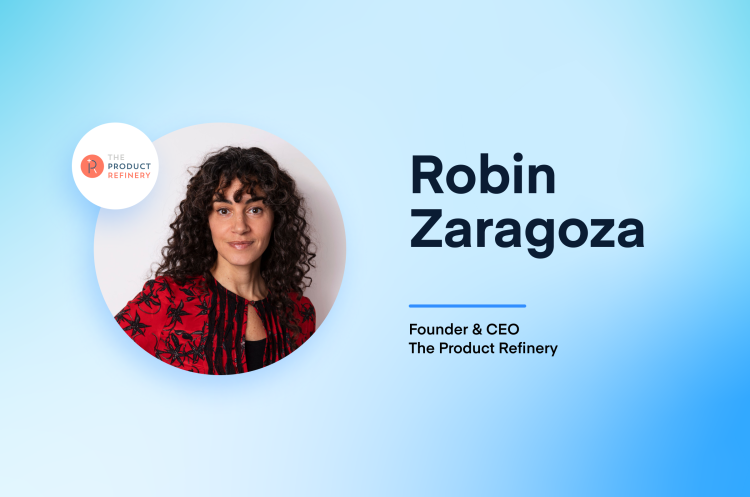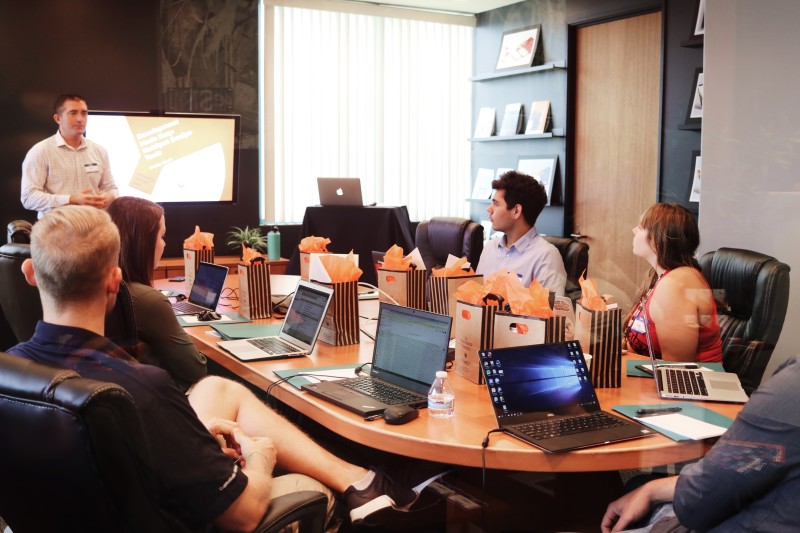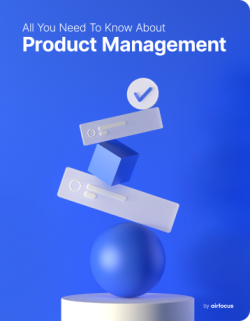Best Practice When Setting Product OKRs – The Consultant Perspective, With Robin Zaragoza

Best Practice When Setting Product OKRs – The Consultant Perspective, With Robin Zaragoza
OKRs - Objectives and Key Results Setting – have been around in business for a while now, an established methodology to set challenging goals with measurable results. However, the last few years have seen OKRs used more and more with specific regard to product.
What's behind this trend, and how should organizations approach deploying product OKRs?
Ahead of airfocus’ upcoming roundtable - Kick Off 2022 by Setting Your Product OKRs Right – we are running a series of interviews with the participants. Here we speak with Robin Zaragoza, consultant and Founder & CEO of The Product Refinery.
airfocus: Hi – can you please tell us a little about who you are and the organization that you work for?
Robin: I’ve worked in product for around 15 years and for the last six have been doing so via The Product Refinery. We’re a product coaching company helping heads of product and senior PMs solve their biggest challenges and do their jobs better. We work together on anything that is holding them or their team back, whether it be strategy, discovery, team structure, or delivery practices. And for those that are new to leadership roles, we often spend a lot of time looking at management, communication, and leadership skills.
I’ve found that there are tons of product people out there, especially at start-ups and scale-ups, who don’t have anyone else to turn to at the company - no one who knows better. Internally, we refer to these folks as lone rangers. They essentially have to do their jobs alone with very little support. While there are plenty of amazing courses out there that can help, when they’re in the thick of it, what they learn in a course doesn’t always go according to plan. It’s all down to context. Which is where a coach comes in. We’re a sounding board, thought partner, advisor, and teacher. We provide answers to the biggest questions, and unblock them in what is often an overwhelming environment. Ultimately coaching grows capabilities while simultaneously increasing confidence and progressing people to the next stage of their career.

airfocus: The last 18 to 24 months have seen a real trend in organizations utilizing product OKRs. Why do you think that is?
Robin: In product management, we are always looking for ways to build “the right thing.” And while there really is no “right” thing, there ARE decisions that turn out to be good ones, and others that don’t. We make so many small decisions on a daily basis as product people that contribute to larger company outcomes, but without a clear set of goals as guidance for our decisions, we’re shooting in the dark and hoping for the best. I think this is why we’re seeing people flock to OKRs. They provide a very clear framework for defining what we’re trying to accomplish and what success looks like. OKRs become the connective tissue between strategy and delivery, helping us understand and find meaning in what we’re doing. And because they define what is in and out of scope with clearly defined success metrics, they also facilitate better conversations, alignment, and decision-making across the board.
Maybe I’m overthinking it, though. Maybe they’re just popular because Google adopted them!
airfocus: How well are organizations doing with the deployment of product OKRs?
Robin: It requires a lot of patience to get OKRs to work effectively. It’s a bit like Agile in that respect – relatively simple on the surface, but when you use it, there’s a lot of complexity to unpick. I’ve even seen senior people use OKRs as a whipping stick, which will never be successful.
For product OKRs to be a success, organizations need to give them time, approach them collaboratively across teams, and adopt much more of a bottom-up approach for strategy and goals.
airfocus: Why do some organizations not succeed with product OKR?
Robin: If the strategy is unclear, OKRs won’t work. You can try, but you’ll just be using a framework for the sake of it, and they will fail. Your product strategy must be crystal clear ahead of time. If you can’t agree on your target customers, your value proposition, your revenue model, or if that strategy is too surface level, trying to agree what will move the needle for your product is a painful and fruitless exercise.

airfocus: What advice would you give to an organization embarking on product OKR?
Robin: You should never rush the adoption of OKRs. I would always advise organizations to start early in terms of understanding how to go about it. So, if you want to kick off in January, start the discussions about why and how you want to adopt them in September or October. You’ll need buy-in, some level of education about them, agreement on approach, etc. This requires time, and if you rush this process, and fail in your first cycle, this will set the scene for the rest of the organization adopting OKRs (or perhaps, not adopting them without an example of what good looks like).
It’s also sensible not to try and do everything at once. Start small with one or two teams, get the successes, and apply that elsewhere. These teams can also act as champions for product OKR across the rest of the organization.
Lastly, and I’m biased here, working with an external OKRs coach will make the process a lot smoother and ensure OKRs are successful from the start.
airfocus: What’s in store for 2022 and product OKRs?
Robin: Product OKRs are here to stay. They are truly the next evolution of goal setting. 2022 will see more and more companies working with OKRs. If you want to focus on the right things for your product, then you must have clear goals. OKRs are the best way to achieve this, in my opinion anyway.
Robin will be elaborating on these points and more during the forthcoming airfocus roundtable on product OKR.
It will take place on Thursday, January 27th, 2022, at 11:00 AM (EST), and interested parties can click here to register for the roundtable.
Valentin Firak

Read also




Experience the new way of doing product management

Experience the new way of doing product management





